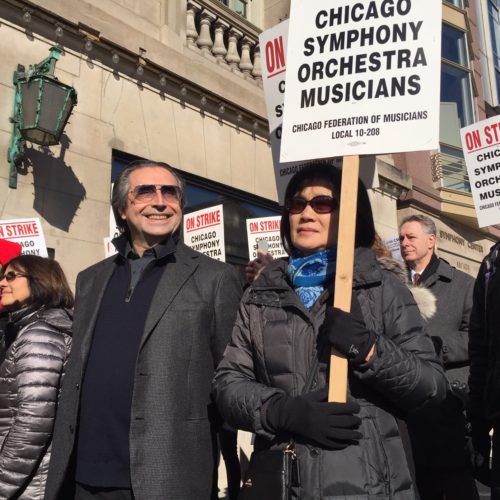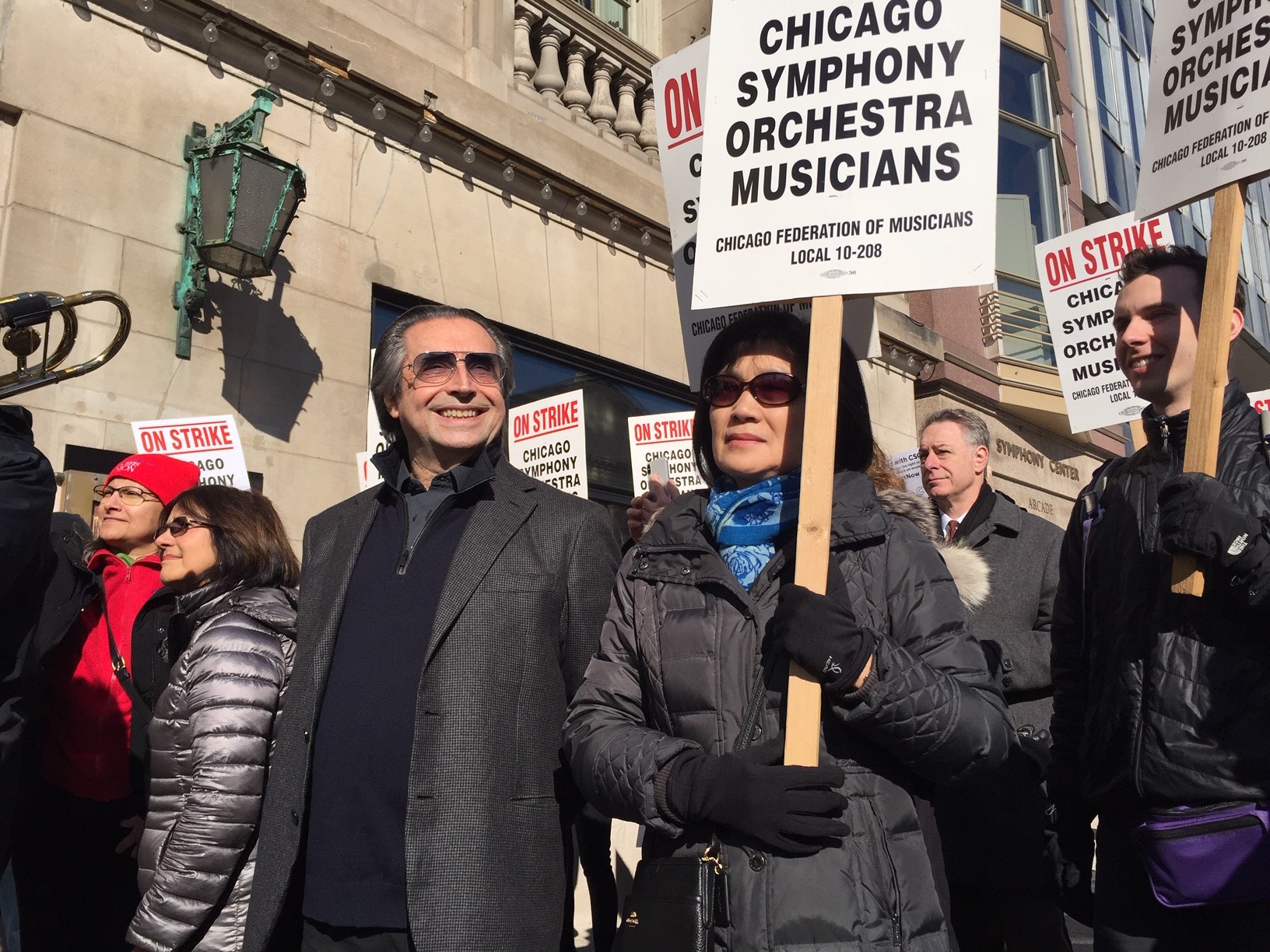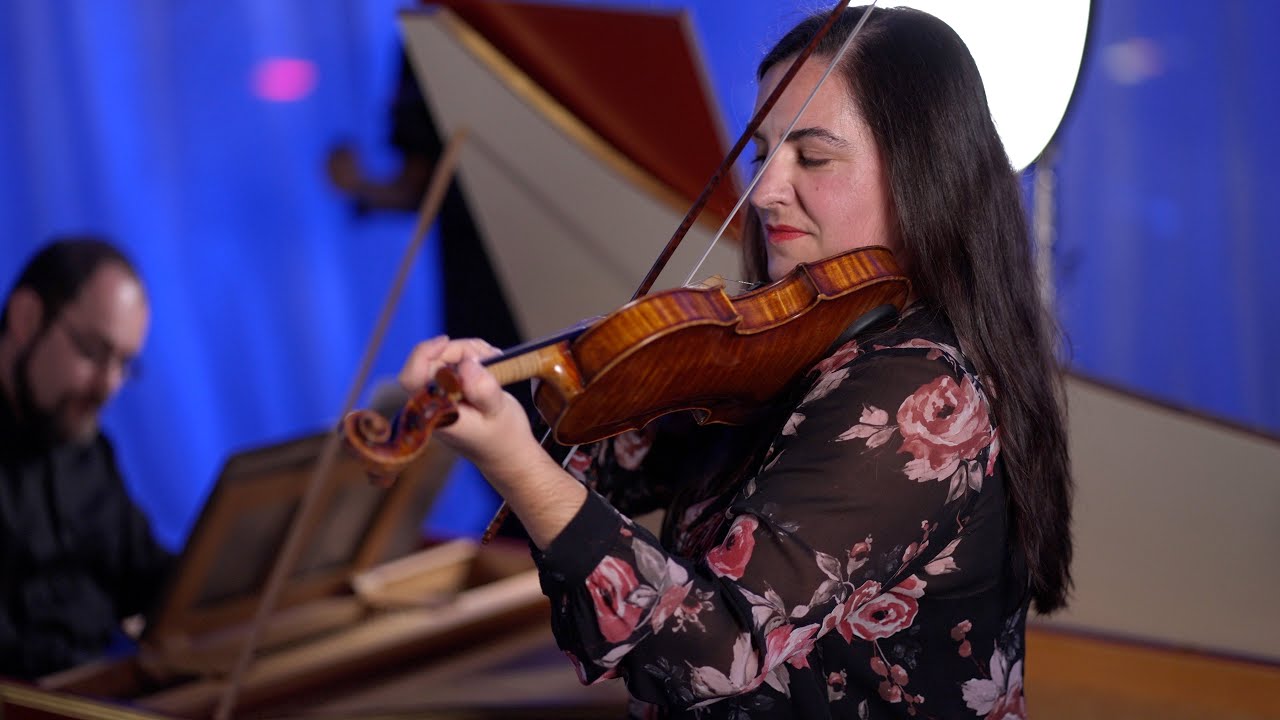Chicago takes $5 million box-office loss during strike
mainThe Chicago Symphony has just published annual results in which the blood is buried in the footnotes:
– Ticket sales for the 2018/19 season totaled $18.5 million, a decline of nearly $5 million from the 2017/18 season for CSOA-presented events as a result of the seven weeks without CSOA concert presentations. 49 concerts in Chicago and 1 “run-out” concert for the Orchestra were canceled for a total of 50 canceled, paid events.
– The decline in operating revenue was offset by lower operating expenses of $3.5 million and increased support of $1.3 million, for a net increase in the deficit of $200,000 versus last year.







In other words, if concessions by the musicians has a monetary value of over $200K, the strike actually was a benefit to management in the long term.
interesting
I suppose the admins continued paying themselves during this time. They should have been furloughed by the board.
The hard work of raising money, planning future seasons, maintaining the physical facilities, etc., does not cease simply because no concerts are being performed. Yes, a few executives at the very top are compensated handsomely, but the vast majority of arts admins are overworked and underpaid, with no union-backed pension and welfare “safety nets” and certainly no job security. Your comment is demeaning and betrays your ignorance.
You are “raising money and planning a season” like business as usual, while the musicians are spending their retirement savings. Is that fair? If no one got paid, these work stoppages would be a lot shorter.
The base salary of CSO instrumentalists in the 2017/2018 season was $159,016.00, with many players earning much more, depending on longevity and position. The majority of the administrative staff earns less than a third of that for working 50+ hour weeks, far more than the aggregate service hours of the musicians. And unlike the orchestra members, they don’t get a generous pension, and do not have the benefit of collective bargaining. I am not suggesting that CSO musicians do not deserve their union-negotiated compensation packages; certainly they have trained for years and work very hard. But to insinuate, as many commenters on this site do from time to time, that arts administrative staffers are enriching themselves while the musicians suffer, clearly does not have firsthand experience working in this business.
Thank you, Chris.
As someone who works in Arts administration, I work far more hours than I’m paid, I dont get overtime, and I’m not part of collective bargaining.
I’ve personally expensed office supplies when money was really tight. I’ve picked up artists at the airport. I’ve arranged donor functions, and poured drinks. I do a lot of things that are outside my job description, but I do them because a) I love my job, and b) I want to keep having a job.
Patrons know me by name, and have my private number. That’s intentional: they consume our product, make large contributions, and need to feel important to the organization.
Shutting down administrators during a labour strike would kill the organization. If you can continue to engage with your funders patrons, why have an organization?
I’m sure the CSO has a good admin team, but with the lower budget orchestras, it’s possible that the admin team aren’t as effective as they good be – especially if they want to reduce the orchestra’s size and season. That’s when you want to ask if they are doing everything they can.
In a market economy, it can be hard to find highly skilled, motivated employees when one can’t offer them competitive salaries. Many arts admins earn less, on an hourly basis, than the going rate for a babysitter. Those who insist that arts admins should be working purely for the love of the arts are part of the reason classical music is dying.
DITTO! What Chris said x 1,000. We can debate the salaries of the high-level execs at these institutions, but there are many hard-working cube-dwellers who are NOT raking in the big bucks.
AND the institutions need these cube-dwellers a part of the fund-raising apparatus needed to scrounge up enough donations to cover the salaries of the musicians, MD, and aforementioned execs.
The pattern is this: musicians negotiate raises etc. (by no means saying here that increase in compensation is undeserved) –> Institution can raise ticket prices only so far, so much start shaking down donors –> hires more staff for donor shakedown –> next time musicians contract is up, musicians complain about the increase in office staff, “Fire those guys so you can pay us more” – see the vicious circle??
There will more lost revenue this year, even though the strike is over. Many subscribers and single ticket buyers have carry-over credits for this season from cancelled concerts. The CSO is in an odd predicament of many relatively small annual deficits, but they will eventually add up.
The small deficits are surprising, especially given the size and heft of their board. More than 60 trustees, and 75 lifetime trustees, should be able to come up with $200,000 at the end of a fiscal year, especially given that it’s a group of CEOs, attorneys, financiers, and leading philanthropists. The board is ultimately responsible, and you’d think they’d stretch their contributions to avoid these small deficits.
Perhaps they already do.
The really surprising part of this report is buried in that last sentence that mentions “support” (i.e. fundraising) increased $1.3 million over last year. It is incredibly hard to fund raise during a strike/lockout. If the general public takes sides in the public fight, they are either convinced that the musicians are entitled or that management is inept and wasting money. Either perception makes it harder to get little old ladies or business tycoons to give more generously. It could just be one major gift or something that was accounted for this year, but kudos to the fund raising staff.
Am awaiting comment from Emma Gerstein (flute), Max Raimi (viola), and others who adopted a confrontational tone during the strike.
Another thought. Has there been a drop-off in ticket sales/subscriptions for the current season? It is unlikely that this information will be forthcoming.
Jasper
So far this season the ticket sales have been quite dismal. Orchestra Hall seats approximately 2,500 people. According to the online seating chart there were only about 1,200 tickets sold for last night’s performance of Haydn Sym. #44, Strauss Death & Transfiguration, and Brahms Sym. #3. When you take into account the last minute turnbacks and no-shows, you’re probably looking at about 1,000 in attendance.
In the past 20 years I never saw attendance that low except for a handful of concerts in the Barenboim era where the majority of the program was “contemporary” (Carter, Takemitsu, Boulez, Thomas, etc.)
When Muti is here the attendance is usually better, but over the last few seasons his presence has not been filling the hall to capacity unless the program is Verdi.
As long as Helen Zell is paying the Maestro’s salary, there only need be an audience of 1. She’ll foot that bill and it’s a rounding error for her taxes.
As far as the orchestra goes, we are in a different age. They got a good contract overall, but Chicago is hurting.
The teachers are striking, the City is broke, and violence continues to plague many neighborhoods.
There are many other issues that are more important than feeding this plaything of the ultra-rich.
In a newspaper account, there was mention of particular success in fundraising in the past fiscal year due to the promotion of three events: a Verdi concert opera conducted by Muti, an outdoor performance of Bach Cello Suites by Yo You Ma, and a Florida tour.
Concerning overall donations, it will be interesting to see to what extent the tax change legislation that limited the federal income tax deductibility of small contributions will impact organizations like the CSO.
It was a long strike by CSO standards. A few years ago, the CSO struck on opening night with a full house waiting to hear them sent home with nothing for their trouble but a bad taste.